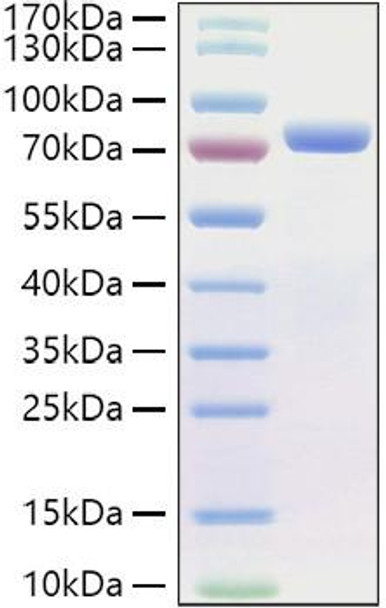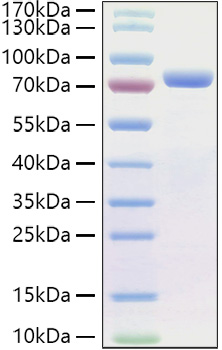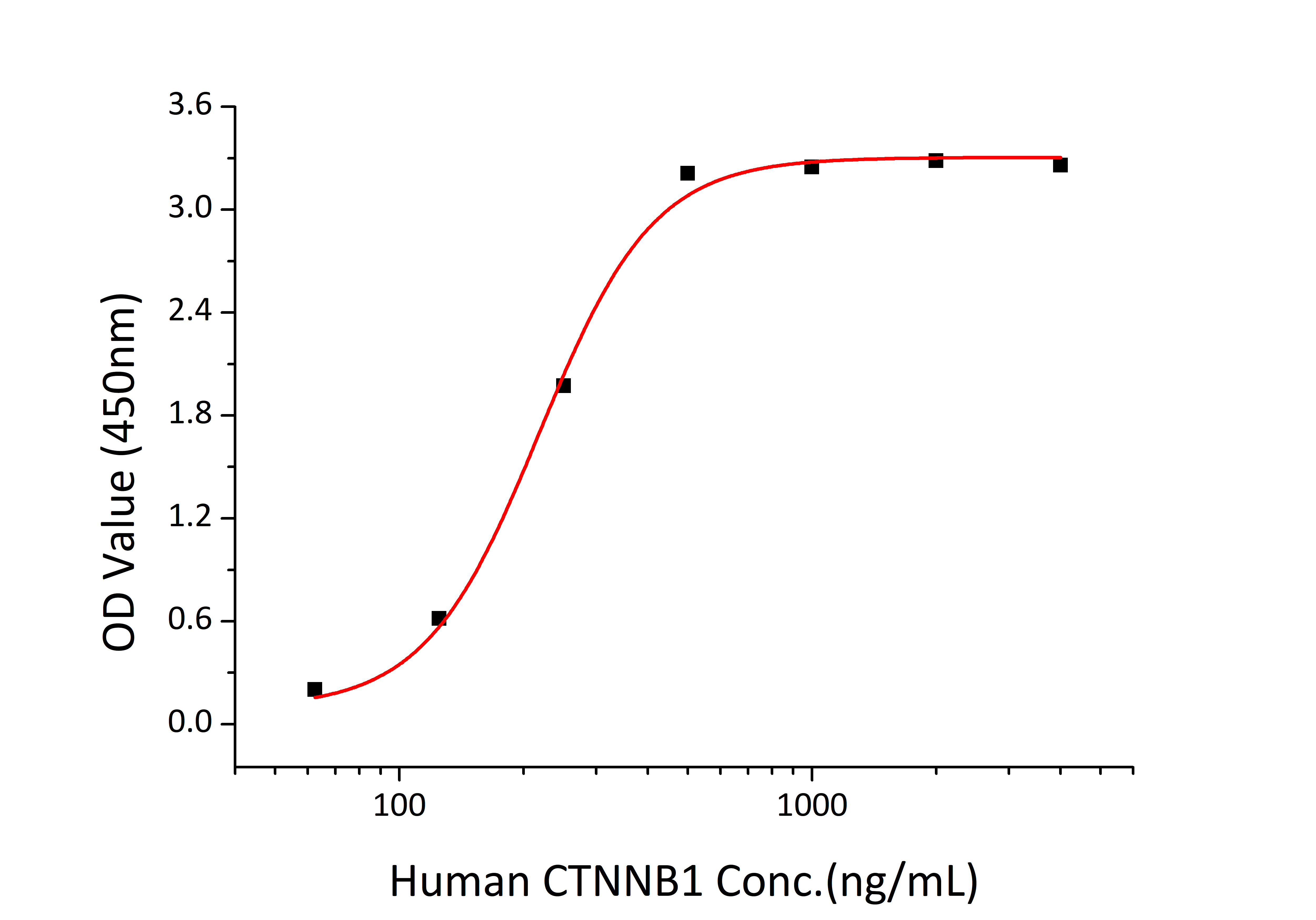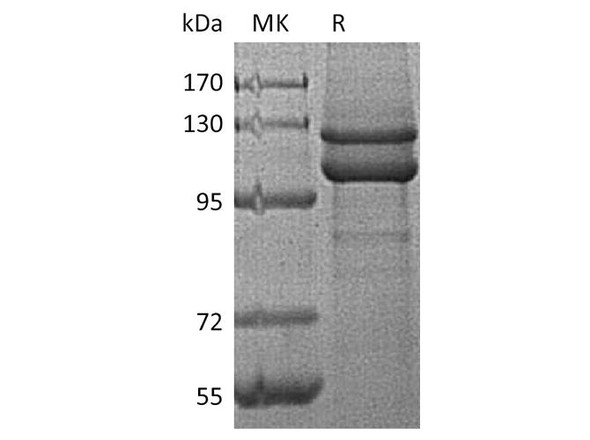Description
Recombinant Human E-Cadherin/CDH1/CD324 Protein
The Recombinant Human E-Cadherin/CDH1/CD324 Protein is a biologically active recombinant protein that plays a significant role in various cellular processes and signaling pathways in human biology. This protein is widely employed in immunological research, cell biology studies, protein-protein interaction analyses, and therapeutic development, providing researchers with a reliable tool for investigating E-Cadherin/CDH1/CD324 function and its implications in health and disease.
This product (SKU: RPCB0944) is produced using HEK293 cells and features a C-His tag for convenient detection and purification. The protein exhibits a calculated molecular weight of 61.36 kDa with an observed molecular weight of 70-85 kDa under denaturing conditions, achieving ≥ 95 % as determined by SDS-PAGE.. Functional bioactivity has been validated through rigorous quality control assays, confirming its suitability for demanding research applications.
Key Features
| High Purity by Affinity Chromatography | |
| Mammalian & Bacterial Expression Systems | |
| High lot-to-lot consistency via strict QC |
| Product Name: | Recombinant Human E-Cadherin/CDH1/CD324 Protein |
| SKU: | RPCB0944 |
| Size: | 10 μg , 20 μg , 50 μg , 100 μg |
| Reactivity: | Human |
| Synonyms: | Arc-1, CD324, CDHE, ECAD, LCAM, UVO, CDH1, E-Cadherin, Arc-1, CD324, CDHE, ECAD, LCAM, UVO, cadherin-1, E Cadherin |
| Tag: | C-His |
| Expression Host: | HEK293 cells |
| Calculated MW: | 61.36 kDa |
| Observed MW: | 70-85 kDa |
| Gene ID: | 999 |
| Protein Description: | High quality, high purity and low endotoxin recombinant Recombinant Human E-Cadherin/CDH1/CD324 Protein (RPCB0944), tested reactivity in HEK293 cells and has been validated in SDS-PAGE.100% guaranteed. |
| Endotoxin: | < 0.1 EU/μg of the protein by LAL method. |
| Purity: | ≥ 95 % as determined by SDS-PAGE. |
| Formulation: | Lyophilized from a 0.22 μm filtered solution of PBS, pH 7.4. |
| Bio-Activity: |
|
| Reconstitution: | Centrifuge the vial before opening. Reconstitute to a concentration of 0.1-0.5 mg/mL in sterile distilled water. Avoid vortex or vigorously pipetting the protein. For long term storage, it is recommended to add a carrier protein or stablizer (e.g. 0.1% BSA, 5% HSA, 10% FBS or 5% Trehalose), and aliquot the reconstituted protein solution to minimize free-thaw cycles. |
| Storage: | Store at -20℃.Store the lyophilized protein at -20℃ to -80 ℃ up to 1 year from the date of receipt. After reconstitution, the protein solution is stable at -20℃ for 3 months, at 2-8℃ for up to 1 week. |
Cadherins are calcium-dependent cell adhesion proteins which preferentially interact with themselves in a homophilic manner in connecting cells, and thus may contribute to the sorting of heterogeneous cell type. E-cadherin (E-Cad), also known as CDH1 and CD324, is a calcium-dependent cell adhesion molecule the intact function of which is crucial for the establishment and maintenance of epithelial tissue polarity and structural integrity. Mutations in CDH1 occur in diffuse type gastric cancer, lobular breast cancer, and endometrial cancer. In human cancers, partial or complete loss of E-cadherin expression correlates with malignancy. During apoptosis or with calcium influx, E-Cad is cleaved by the metalloproteinase to produce fragments of about 38 kDa (E-CAD/CTF1), 33 kDa (E-CAD/CTF2) and 29 kDa (E-CAD/CTF3), respectively. E-Cad has been identified as a potent invasive suppressor, as downregulation of E-cadherin expression is involved in dysfunction of the cell-cell adhesion system, and often correlates with strong invasive potential and poor prognosis of human carcinomas.








